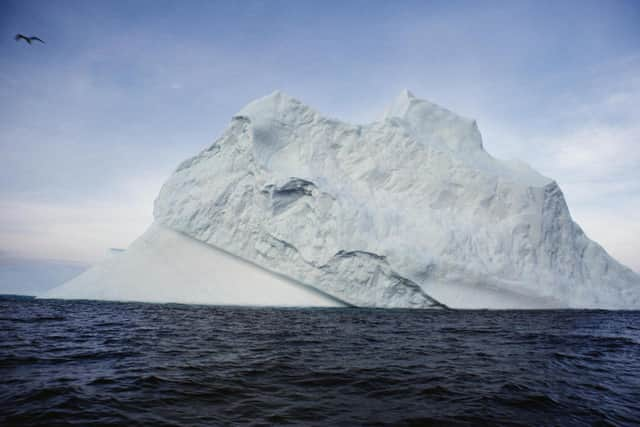Hottest day on record shows why we need to act now on climate - Andy Brown
What is taking place in the sea is every bit as worrying. For many decades the oceans of the world have absorbed a lot of extra energy without showing increases of temperature as large as might be expected. The seas are very deep and it was starting to look as if global heating would consequently be significantly slower in our oceans.
Not any more. Temperatures across the whole of the North Atlantic are averaging 1.2 degrees above what has been normal since 1982. In the Antarctic measurements of sea ice formation are coming up with results so low that they would happen by chance once every 7,400,000 years.
Advertisement
Hide AdAdvertisement
Hide AdWhat is worrying climate scientists is that this means their models are almost certainly wrong. Increases in temperatures of this amount weren’t supposed to happen this early. The factual evidence now suggests that we have been seriously underestimating global warming. It is happening faster, harder and earlier than the models suggested.


We can see the impact of the changes most clearly in individual events. Across Canada fires have been raging for weeks which have destroyed so much of the temperate rainforest that their smoke has obscured the skies over New York many hundreds of miles away.
Planting more trees has always been viewed as one of the easiest and most efficient ways to reduce the scale of global warming. When climate change starts to result in tree cover catching fire across a huge area of slow growing forest we are entering dangerous territory.
If the frozen ground across Canada and Siberia melts then we are in even bigger trouble as this will release trapped methane and that risks taking us into chaotic and uncontrollable changes that humanity may not be able to adapt to.
Advertisement
Hide AdAdvertisement
Hide AdWhich makes what is happening in the States with the Inflation Reduction Act all the more important. They are putting a wall of money into investments in green technology with the aim of ensuring that their industry and commerce are equipped with greener, cheaper equipment and premises and supporting homeowners to cut their energy use with subsidies.
There is also good news from China, which is often accused of dragging its feet on climate change. They are similarly investing in making rapid changes. They still have some of the dirtiest coal powered industries on the planet but they are way ahead on things like shifting to electric vehicles and have some impressive tree planting programmes.
The approach of China to international summits on climate change has been to be reluctant to make promises but to take actions that stand some prospect of fulfilling them. The approach of the UK has tended to be very good at making promises but then to fail to deliver on them. We still maintain an effective ban on onshore wind power regardless of the fact that it is incredibly cheap and we are still dragging our feet very badly on insulating Britain. We don’t have a single large scale modern battery factory in Britain or a realistic plan to create one anytime soon.
Increasingly chaotic and unpredictable changes to the climate are already putting at risk important sources of UK food imports such as Spain which has horrendous problems with droughts alternating with floods.
Advertisement
Hide AdAdvertisement
Hide AdWe are therefore going to have to get very serious very soon about supporting our farmers to produce more at home and our consumers to eat what is locally in season.
Last winter much of the EU had its fingers very badly burned by relying on oil and gas imports from an unreliable neighbour that had used much of the profits to build up its military and tried to use it to take control of the whole of Ukraine.
One of the very few positives from that horrible mistake is that Europe has learned the hard way the benefits of investing in cutting energy consumption and has started to prioritise it.
Reductions in expected consumption are already having an impact. The price of oil and gas has dropped back below the levels that it stood at before the Ukraine crisis despite serious disruptions in supply and cynical efforts of the OPEC producing nations to take advantage of the situation by limiting supply to hike the price.
Advertisement
Hide AdAdvertisement
Hide AdNo one knows for certain whether the positive measures that some nations are taking will be sufficient to head off collapses in stable climate conditions which threaten the lives and the secure livelihoods of the next generation. What we do know is that we don’t have time to drag our feet and that the nations which are the quickest to act will be the ones that are best placed to cope in changed economic and environmental circumstances.
Andy Brown is the Green Party’s North Yorkshire Councillor for Aire Valley.